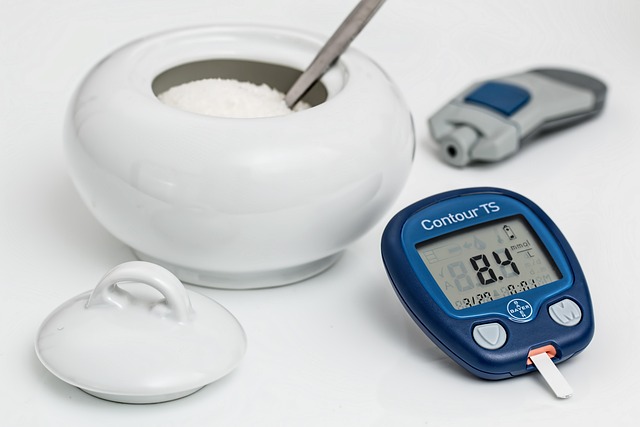Hormonal imbalances, common across the UK, can significantly impact fertility through disrupted reproductive processes. The UK Testosterone Blood Test is a key diagnostic tool for men's reproductive health, measuring testosterone levels to detect conditions like hypogonadism early. Timely treatment initiation improves outcomes by addressing deficiencies with medication or interventions. Beyond testosterone, advanced tests assessing oestrogen, progesterone, and thyroid levels offer clues about fertility issues, enabling healthcare professionals to create tailored treatment plans for enhanced reproductive well-being.
In the intricate dance of reproductive health, hormone analysis plays a pivotal role in unraveling fertility mysteries. Understanding hormonal imbalances can shed light on why achieving pregnancy might be challenging. The UK Testosterone Blood Test is a powerful tool that helps diagnose and treat a range of reproductive issues by assessing key hormones. This comprehensive guide explores not just testosterone but other crucial hormones, providing insights into the root causes of infertility and paving the way for tailored treatments.
- Understanding Hormonal Imbalances and Their Impact on Fertility
- The UK Testosterone Blood Test: How It Helps Diagnose and Treat Reproductive Issues
- Exploring Other Hormones: Uncovering the Root Causes of Infertility
Understanding Hormonal Imbalances and Their Impact on Fertility
Hormonal imbalances can significantly impact fertility, affecting both men and women in the UK. Understanding these imbalances is crucial for effective treatment and improving reproductive health. Hormones play a vital role in regulating various bodily functions, including menstrual cycles, sperm production, and egg development. When there’s a dysregulation, it can lead to a range of issues that hinder conception.
For example, elevated or low hormone levels can disrupt ovulation, causing irregular periods or even cessation. In men, insufficient testosterone can result in decreased sperm count and motility. A simple UK Testosterone Blood Test can help identify these imbalances early on, enabling healthcare professionals to offer tailored treatments, such as hormone replacement therapy or lifestyle interventions, to restore balance and enhance fertility prospects.
The UK Testosterone Blood Test: How It Helps Diagnose and Treat Reproductive Issues
In the UK, the Testosterone Blood Test plays a pivotal role in diagnosing and managing reproductive issues, particularly in men. This simple yet powerful tool measures the levels of testosterone, a key hormone responsible for various physiological functions, including sexual development and fertility. By analysing a blood sample, healthcare professionals can identify abnormal testosterone levels, which may indicate underlying conditions such as hypogonadism, a common cause of low fertility and reduced libido.
Early detection through the UK Testosterone Blood Test is crucial in initiating timely treatment. If testosterone levels are found to be low, medical intervention can help restore balance. This may involve prescription medications or, in some cases, therapeutic interventions designed to address the root cause of the deficiency. Regular monitoring through periodic blood tests ensures that treatment remains effective and allows for adjustments as needed, ultimately contributing to improved reproductive health outcomes.
Exploring Other Hormones: Uncovering the Root Causes of Infertility
Exploring Other Hormones: Uncovering the Root Causes of Infertility
In many cases, infertility can be traced back to hormonal imbalances, which often go undiagnosed. While testosterone is a well-known hormone crucial for reproductive health, especially in men, there’s a complex web of other hormones at play. Understanding and analysing these hormones can provide vital clues about underlying issues affecting fertility. In the UK, advanced test options like the Testosterone Blood Test offer a window into this intricate hormonal dance.
By examining not just testosterone levels but also oestrogen, progesterone, and thyroid hormones, healthcare professionals can identify imbalances that may contribute to infertility in both men and women. This holistic approach ensures that potential root causes are uncovered, enabling tailored treatment plans for optimal fertility outcomes.
Hormone analysis, particularly through tests like the UK Testosterone Blood Test, plays a pivotal role in diagnosing and treating reproductive issues. By understanding hormonal imbalances and their impact on fertility, medical professionals can uncover root causes hidden beneath the surface. This comprehensive approach ensures tailored treatments that enhance chances of conceiving, offering hope and improved outcomes for those navigating infertility challenges.
